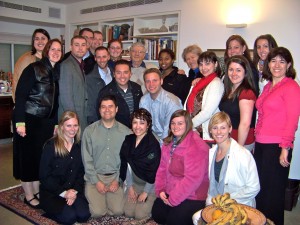Milwaukee Foreclosure Mediation Program: Theory to Practice
Andrea Schneider and Natalie Fleury have a new paper on SSRN that describes the Milwaukee Foreclosure Mediation Program and analyzes the MFMP’s design by reference to dispute resolution theory. The MFMP responded to the ongoing foreclosure crisis in Milwaukee, emerging from an initiative involving Marquette Law School and several government agencies, elected leaders, and community organizations. The MFMP creates voluntary mediation opportunities for homeowners and lenders in the hope of renegotiating payment terms such that both sides will benefit. So far, the results seem impressive, with home-retention agreements reached in more than forty percent of mediations and high levels of satisfaction reported by program participants.
Andrea and Natalie conclude as follows:
The opportunity to put years of writing and work in the field to use to help out the city, state, and court system was an honor and unique opportunity for the law school. Both professors and students witnessed law school teachings put to work and had a rewarding impact in their own backyard. It also has given us, as designers, far greater insight into the local government and local community than we would have had without this collaboration. Most importantly, mediation has worked in exactly the way that we theorized. The communication between the parties is vastly improved through the program than it would be otherwise. Parties have control over the outcomes, not perfectly, but again, much more so than they would have in the alternatives. And the program provides for efficient solutions as the city continues to struggle with foreclosures. Moving forward, we have to map student availability and interest with the needs and opportunities presented by the program. But we have witnessed the putting of theory into practice in a wonderful way while recognizing that we would have all preferred that this particular need not exist.
Their paper, entitled “There’s No Place Like Home: Applying Dispute System Design Theory to Create a Foreclosure Mediation System,” will appear in the Nevada Law Journal.


